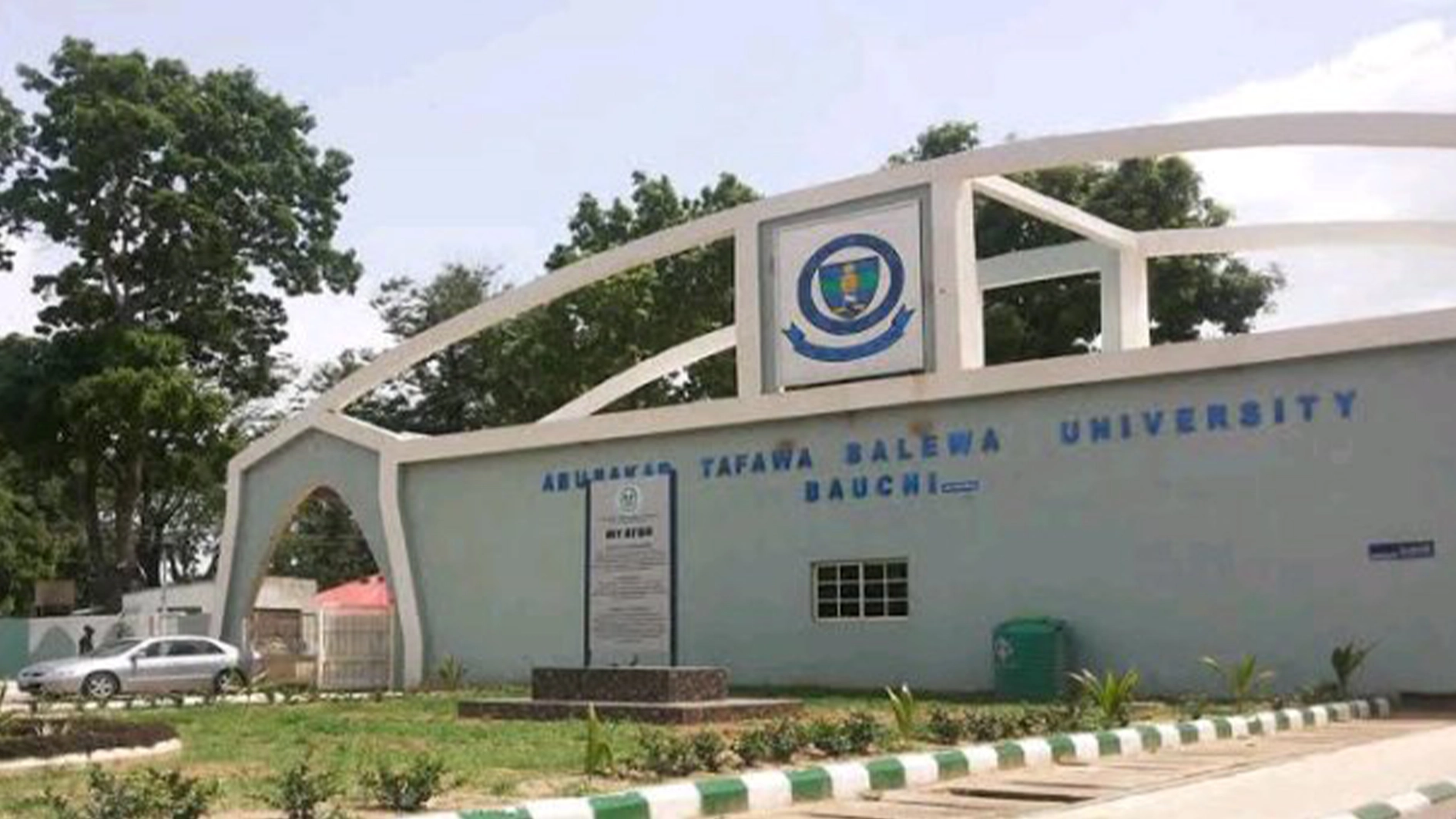
Conspiracy, inefficiency and fatal illness have cast a pall over one of Nigeria’s prestigious schools, Queen’s College. Fingered in the predicament facing the school is the government and management. Head, Education Desk, IYABO LAWAL, writes on how the duo might have let down pupils in the school.
Mrs. Cynthia Adama has not slept in almost five days as her gaze remained fixated on her 12-year-old daughter, who was admitted at the Child Emergency Unit of the Lagos University Teaching Hospital (LUTH) Idi-Araba.
“Your daughter has been vomiting… she just collapsed,” those were the last words she heard on the other end of her mobile phone as she raced to Queens College, Lagos.
After tending a child for 12 years, that’s not the news any parent wants to hear especially when they leave that child in the care of people paid to impart knowledge to and protect the child.
That’s why she’s joining a group of parents this week to explore the possibility of a legal action. Someone has to be held accountable.
The circumstances surrounding the deaths of Vivian Osaniyi and Bithia Itulua, Junior Secondary School pupils of Queens College Yaba, are too agonising to recount.
In recent times, the school has been in the news for the wrong reasons. In March last year, a probe panel was set up to investigate alleged sexual assault of a Junior Secondary School (JSS) 2 female pupil by a male teacher.
Now, news emanating about the school is mind-boggling. The college was shut down on February 23 following the death of two boarding students who began vomiting and stooling after allegedly drinking contaminated water and eventually died.
As if that was not enough, an outbreak of cholera soon ensued, leaving about 200 pupils in need of urgent medical attention.
Many parents, who have children in the school, accused the authorities of negligence for allowing the pupils to drink out of the school’s water system when they knew it was unsafe.
Queens College, by all standards, is one of the elite schools in Nigeria that over the years maintained an enviable record of high academic performance, moral rectitude and good upbringing of pupils , which would not have been possible without a tradition of committed management or good school administration. All of that may have changed along with the general decay in the country.
That being the case, news of the death of the students has jolted many people, especially parents and guardians, as well as federal and Lagos State government authorities.
Lagos State Government’s role
As the bad news of the school’s predicament spread like wildfire, it did not go unnoticed by the relevant authorities as the Lagos state ministry of health waded into the crisis and conducted series of tests on the school’s water supply. In its report, the government confirmed that the water taken by the pupils was actually contaminated and advised an indefinite shutdown of the school over the outbreak of water-borne disease.
Addressing reporters on the matter, the state Commissioner for Health, Jide Idris said the school’s resumption should be delayed until appropriate health measures are put in place for the safety of the pupils.
Idris noted further that water samples from the school analysed at the state’s Drug Quality Control Laboratory and the Microbiology Department of the Lagos University Teaching Hospital (LASU) indicated high bacteria content in the water samples from the school’s kitchen, behind the dining hall and Queens Delight, the school’s water factory.
The bacteria range from Coliforms, Escherichia coli, Salmonella, Klebsiella ozoana, and Aeromonas hydrophilia.
Unsanitary environment
According to information on the website of New York State Department of Health, Coliforms are bacteria that are always present in the digestive tracts of animals, including humans, and are found in their wastes. They are also found in plant and soil materials.
It points out that water pollution caused by faecal contamination is a serious problem due to the potential for contracting diseases from pathogen. Frequently, concentrations of pathogens from faecal contamination are small, and the number of different possible pathogens is large.
Although most strains of E. coli are harmless, some produce a toxin that makes humans sick.
Concerning Salmonella, the US Centre for Disease Control (CDC) says they are bacteria that make people sick.
Most people infected with Salmonella develop diarrhoea, fever, and abdominal cramps between 12 and 72 hours after infection. The illness usually lasts four to seven days, and most individuals recover without treatment.
Others like Klebsiella ozoana and Aeromonas hydrophilia are indicative of unsanitary environments. Experts say that Aeromonas hydrophilia is a heterotrophic, gram-negative, rod-shaped bacterium mainly found in areas with a warm climate usually in brackish water.
The implication of this is clear; faecal matter got into the water the students were drinking. Also, the kitchen areas were found to be unhygienic.
But this could not have been a sudden development. Usually, deterioration is the evidence of lack of maintenance and poor management over a sustained period of time.
Queens College was billed to open on March 19 but the Lagos State commissioner for health had asked for a postponement because results from school’s sick bay indicate more pupils should be kept under observation longer.
“The total number of students who were treated at the clinic on account of abdominal pain, fever, vomiting and diarrhoea between January 11 and February 15 was 1,222.
There were four different peak periods of infection namely January 31, February 2, 8, and 14. Sixteen pupils were admitted in various hospitals, nine have been discharged, two died, while one is still on admission at the Intensive Care Unit of LASUTH and three at LUTH,” the commissioner said.
To fully grasp the enormity of the situation, it is best to place it in context. Queens College currently has over 2,800 girls out of which 2,180 of them are in the boarding house while 616 are day students.
This means that 78 per cent of the students’ population has a high risk of being infected. Already 1,222 pupils have exhibited symptoms of infection.
Apart from these children, there has not been any mention of tests carried out on the school’s teaching and non-teaching staff numbering over 200. But there is more to the problem than meets the eye.
The role of the PTA
Following the outbreak of the disease, most parents were disappointed that while cholera was affecting their children, the school was pumping into their body systems malaria drugs.
A cross section of parents berated the school’s management for its insensitivity while also accusing the federal government of neglecting the school.
‘We saw it coming but we didn’t take it serious,” said Mrs. Veronica Ajei, a mother of three whose child is a student of the college.
“My daughter used to tell me that their hostel toilets were no longer being kept clean. She said since the beginning of the first term, she and her colleagues had noticed that no matter how bad the toilets and environment were, the cleaners were hardly ever on duty.”
To Ajei, the school management had been failing in its responsibility to keep the children safe in a conducive learning environment.
James Afolabi, who has two daughters in the college, was also displeased with the school management. But unlike Ajei, Afolabi said the blame must be extended to the leadership of the school’s PTA which he accused of working in conjunction with a former principal of the school, Dr. Lami Amodu, now transferred in the wake of the crisis and replaced by Bola Are.
“The PTA executive was supposed to be protecting parents and the children’s interests, rather, they kept shielding the woman ( Amodu). If not, the issue would not have degenerated to this level. The mismanagement going on in the school would have come to the fore.
Though none of his two daughters were affected, Afolabi recollected the good memories his family has about Queen’s College which necessitated the decision to send his daughters there. He lamented that recent events had caused concern, as the safety of their kids, more than the school’s fame, was all they cared about.
A parent whose child was affected said the PTA chairman told him he paid for 3,000 bags of pure water for the pupils indicating that they had prior knowledge that the water supply was bad.
Why wasn’t any concrete action taken? What should have been the role of the PTA in the school when a possible epidemic is two deaths away?
But the PTA chairman, Dr John Ofobike blamed the federal ministry of education for the present state of the school.
“ So far, the challenges confronting the school and the entire confusion over its situation are traceable to many years of neglect by the Federal Ministry of Education.”
Ofobike denied that his executive was shielding the former principal, insisting that the role of the PTA was only advisory.
Ofobike said when he came on board as the PTA chairman in October 2016, he realised an obvious shortage of staff in two areas of the school — the kitchen and the cleaning departments. He recalled that on assumption, he discovered that there were just six workers in the kitchen to cook for about 3,200 boarding school students every day.
“From the handover note I got, I was made to understand that the PTA had been supporting the school with about 30 staff in the kitchen, 38 cleaning staff, four nurses in the clinic, three drivers, 45 qualified teachers and four PTA secretariat staff. All except the teachers and drivers were laid off because the previous PTA committee could no longer pay for their services. The PTA purse was lean as I was told and later found out.
“On assumption of office, I discovered that the salary of the 45 PTA staff teachers for the month of October was N2.175m and I met N1.517m, so we knew there would be problems. We realised we were also going to have a problem on our hands with the reports coming from the kitchen and the cleaning department as a result of insufficient staff, so we met with the school management and requested we hold an emergency meeting of parents and teachers.
On the issue of contaminated water the children were said to be drinking, the PTA chairman who said he had to spend more than N4m of his own money to address the situation, said two weeks after the students resumed from the Christmas holiday, he received complaints of stooling and vomiting in the school.
“I was called upon but they were saying it was the kitchen and was perhaps the food they ate, no one was sure, especially with the number of students reporting to the clinic with vomiting and stooling. I was called to find out what was the issue and at a point they had to take samples of the water from the school to find out the problem. I was told it must be from the water because the tank was not washed and the corrosiveness must have led to the contamination.
“I then asked the school authorities to instruct the students not to take the water again. I went to the factory in the school to buy sachet water worth N295,000, about 3,000 bags in all. I asked that the sachet water be distributed to each of the students and soon after, there was no more admission at the school’s clinic,” he said.
Globally, the PTA plays a key role in education. PTAs in Nigeria are said to have been largely preoccupied in ensuring high moral standards and academic excellence and some make representations to government to improve learning environment but in the wake of the Queen’s College saga, stronger participation would be required.
A major constraint, educationists say, is that PTAs are not empowered in Nigeria.
“While not taking over the school administration, the government should effectively empower the PTAs and specify their role because they play an important part in educational development,” says Jonnwakalo Chykodili, in a research published for the department of education foundations, University of Nigeria ((UNN) Nsukka.
For now, the school remains shut to enable health teams conduct thorough investigation.
Professor Chidi Odinkalu, President-General of Unity Schools Old Students Association, USOSA, with grief in his heart stated that the situation in the school is a public health emergency and in support of Idris said, “It is not prudent or responsible to allow the return of children to the premises at this time.”
Not a few Nigerians are worried about the disturbing news of children falling sick and dying in the school and they have called for independent certification of the school as safe for human activity before it is reopened.
The duty of looking after children in a learning environment is said to be a sacred trust.
“This public health crisis at Queen’s College calls attention to the responsibility of everyone, especially school managements and education administrators, to uphold this trust at all times,” Odinkalu added.
Only that there is no price big enough to bring back a dead child.
Attitude of the federal ministry of education
It is worrisome that since the cholera outbreak and subsequent death of two pupils at the college, the federal ministry of education has not made any pronouncement on the matter.
Efforts by The Guardian to get the position of the ministry on the incidence proved abortive but an official who spoke on condition of anonymity said because of the uproar the matter has generated the management may have decided to handle the matter as discreetly as possible to avoid further controversy.
The official pointed out that the Queens College scandal is a reflection of the state of broken down infrastructure in most of the nation’s 104 unity colleges, hardly can one go to any of these elitist schools without any case of infrastructural decay.
He however expressed hope that the Queens College crisis would spur the government into action.
According to the source, “Let me tell you, what is happening now did not just start yesterday really, it has always been there and they have allowed it to fester. The truth is that the situation is not peculiar to Queens College, I can tell you that in most, if not all the Unity colleges you visit in the country, you will discover one case of rot or another of broken down facilities.
“My only prayer is that this time around, the current problem with Queens College would spur government into action to begin the rehabilitation of infrastructure in those colleges to restore their fast fading glory.”






